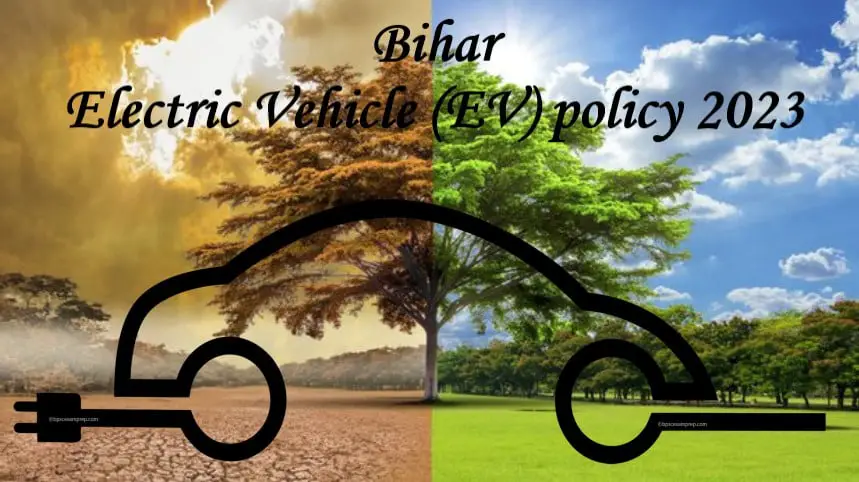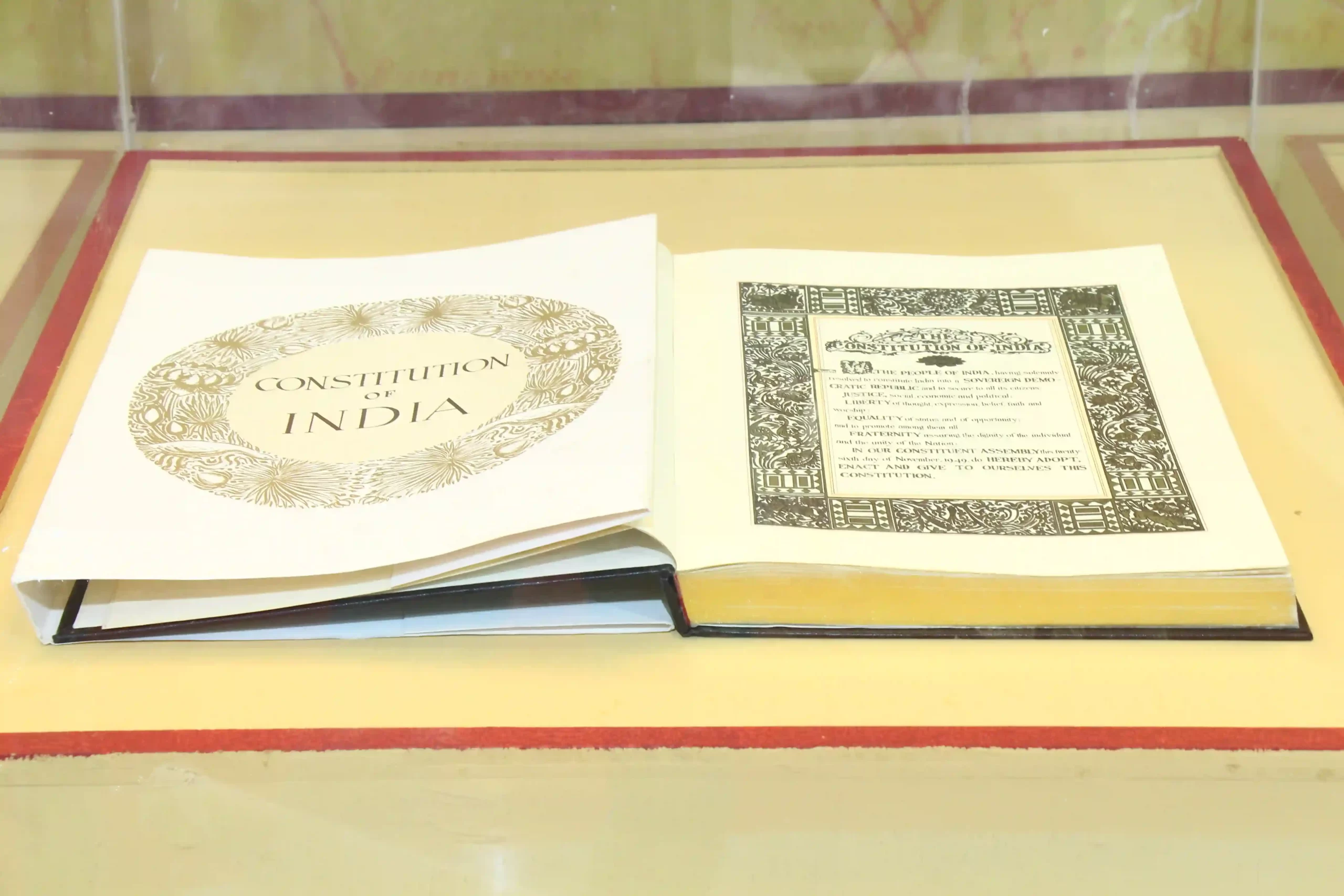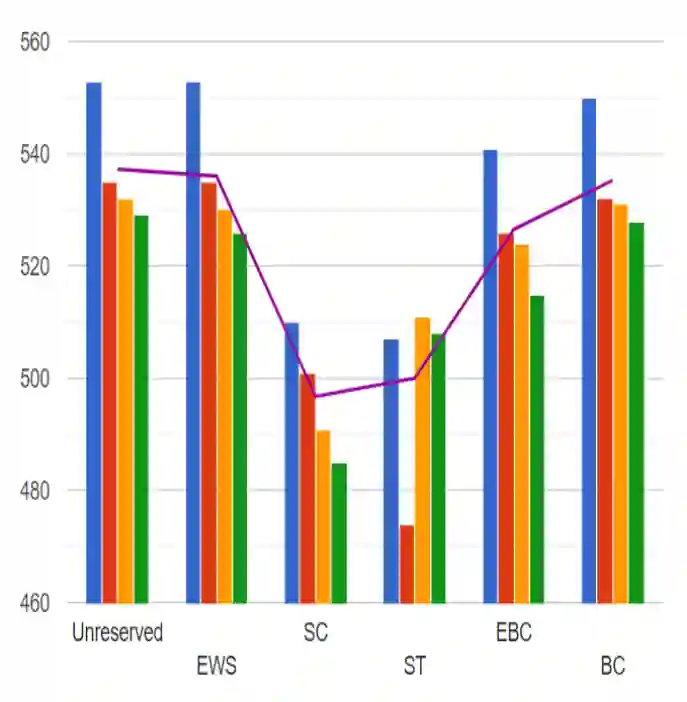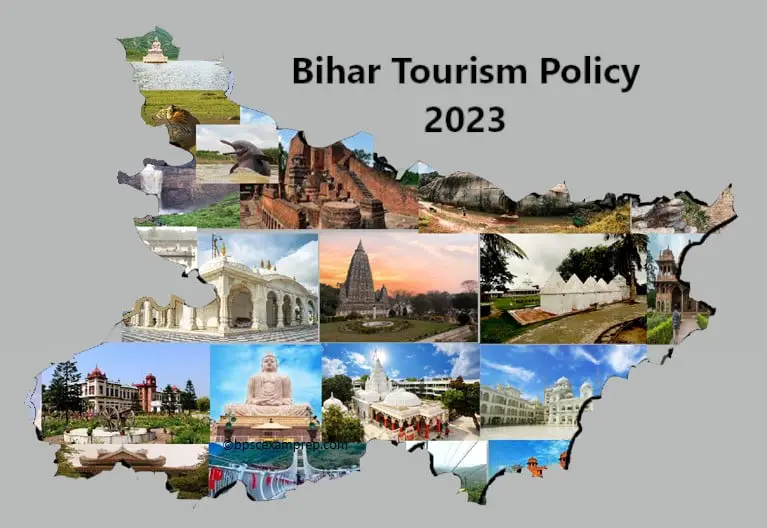Contents:
On 5th December 2023, Bihar government has approved a comprehensive Electric Vehicle (EV) policy 2023 for five years, to promote eco-friendly transportation and reduce air pollution in the State.
Aim:
The policy aims to achieve 15% of the new vehicles purchased and registered in Bihar are electric vehicles by 2028.
Objective:
- To make Bihar a model state for developing an Electric Vehicle transport ecosystem.
- To develop an accessible and robust network of EV charging infrastructure in the state.
- To encourage startups and investment in the field of electric mobility and associated support sectors like data analytics, IT, R&D, etc.
- To improve the quality of the environment by reducing air pollution
Incentives and Subsidies:
The EV policy introduces various measures to incentivise the adoption of electric vehicles, such as:
1). Electric Two-Wheelers:
- ₹ 5,000/- per KWH purchase incentive, up to a maximum for the first 10,000 electric two-wheelers (purchased & registered in Bihar), with an upper limit of ₹10,000/- per vehicle for SC/ST and a maximum of ₹7500/- per vehicle for others.
- 75% rebate in Motor Vehicle Tax for the initial 10,000 electric two-wheelers, followed by a 50% rebate for subsequent purchases.
- Mandate for licensed Aggregators to maintain a percentage of electric two-wheelers in their fleet over specific years.
- Exemption in permit fees for Aggregators encouraging the operation of electric two-wheelers by 2028.
2). Electric Three-Wheeler (Passenger Vehicle):
- 50% rebate in Motor Vehicle Tax for electric three-wheelers during the policy period.
- Exemption in permit fees for newly registered electric three-wheelers.
3). Electric Three-Wheeler (Goods Carriage):
- 50% rebate in Motor Vehicle Tax for electric three-wheelers (goods carriage).
- Exemption in permit fees for newly registered electric three-wheeler goods carriages.
4). Electric Four-Wheeler:
- ₹10,000/- per KWH purchase incentive, up to a maximum for the first 1,000 electric four-wheelers, with an upper limit of ₹1,50,000/- per vehicle for SC/ST and a maximum of ₹1,25,000/- for others.
- 75% rebate in Motor Vehicle Tax for the initial 1,000 electric four-wheelers, followed by a 50% rebate for subsequent purchases.
- Similar mandates for licensed Aggregators as in the case of two-wheelers.
- Exemption in permit fees for Aggregators encouraging the operation of electric four-wheelers by 2028.
5). Light Electric Motor Vehicle (Goods Carriage):
- 50% rebate in Motor Vehicle Tax for light electric motor vehicles (goods carriage).
- Exemption in permit fees for all light electric motor vehicles (goods carriage).
6). Heavy Electric Motor Vehicle (Bus and Goods Carriage):
- 75% rebate in Motor Vehicle Tax for the first two years for heavy electric motor vehicles (bus and goods carriage).
- 50% rebate for subsequent years.
- Exemption in permit fees for all heavy electric motor vehicles during the policy period.
7). Common Provisions for All Categories:
- Scrapping incentives for old vehicles for EV owners.
- Incentives applicable only to EVs complying with FAME (Faster Adoption and Manufacturing of (Hybrid and) Electric vehicles) India scheme’s Technology Definition for each category.
- Subsidized parking for personal EVs provided by municipal authorities.
- Limitation on claiming similar incentives under other state government schemes.
8). Charging Station Infrastructure:
- Focus on establishing accessible EV charging stations in Bihar.
- Incentives for various charger categories applicable for three years.
- Chargers categorized based on type, speed (slow/moderate, fast, and fast CCS/CHAdeMO) and number of guns (charging points).
- Incentives cover equipment/machinery purchase and installation costs.
9). Operational Models for Charging Stations:
9.1). Private Charging Station:
- For residential use, incentives for installation provided.
9.2). Semi-Public Charging Station:
- For both private and commercial use, incentives based on installation provided.
- Maximum of 5 EV chargers per location.
9.3). Public Charging Station (PCS):
- Established for commercial use on government and private land.
- Various incentives for entities establishing PCS.
- Compliance with Ministry of Power guidelines.
10). Power Tariff:
- Electricity at a reasonable rate for public and semi-public charging stations.
- 30% subsidy on Power Tariff for the first three years.
- Subsidy provided by the Transport Department.
- Encouragement for the supply of renewable energy.
11). Recycling Ecosystem – Battery and Electric Vehicle:
- Encouragement of battery reuse and promotion of recycling businesses.
- Policy for battery reuse to be notified by the Industries Department.
©bpscexamprep.com
Policy Implementation:
- Three-tier arrangement for directives, monitoring, and implementation.
- State Level EV Steering Committee, EV Monitoring Committee (Transport Department), and District-Level EV Committee.
- Transport Department EV Monitoring Committee to oversee policy implementation.
- District-Level EV Committee at the district level to review and address issues quarterly.
Global recognition:
The Bihar Electric Vehicle Policy was highlighted by World Resources Institute (WRI) India CEO Madhav Pai at the United Nations Climate Change Conference of the Parties (COP-28) in Dubai during a session themed ‘Leading E-Bus Transition: Global Experiences and Learning’, showcasing the State’s commitment to fostering sustainable practices and combating climate change.
***






